About CBT
Cognitive-behaviour therapy is a specialised and well researched form of psychotherapy that aims at changing thoughts and behaviour in the present rather than focusing on the past. The therapy is structured and goal oriented and during a course of CBT, clients are typically guided to examine and overcome destructive thoughts, emotions, physical sensations and behaviour. Apart from supportive and structured in-session work, clients are also encouraged to explore and work experientially between sessions.
Read more!
Cognitive behavioural therapy (CBT) is an umbrella term for a variety of dynamic and evolving psychotherapies. Rooted in behaviourism, CBT focuses on cognitions (thoughts) and how they influence emotions and behaviour. All CBT theory is based on scientific research and the resulting treatment procedures are scientifically proven effective. Both Albert Ellis and Aaron Beck are credited as founders of CBT as we know it today and while both developed distinctively different therapies, all CBT has a common focus on the ‘here and now’, a directive or guiding role of the therapist, a structured treatment approach, alleviation of symptoms and of clients’ vulnerability. As such CBT addresses dysfunctional and unhealthy emotions, thoughts and behaviours with a view to decrease the frequency and intensity of these through goal-oriented, structured procedures. With CBT being nearly 50 years old there are new developments, a so called third generation, within the cognitive behavioural therapies. These therapies focus less on the control and content of our thoughts but examine our relationship with our thoughts, their context and the process of thinking itself. Examples of these new therapies are Acceptance and Commitment Therapy (ACT), Dialectical Behaviour Therapy (DBT), Mindfulness Based Cognitive Therapy (MBCT), and Behavioural Activation (BA).
Why CBT?
Cognitive-behaviour therapy is one of the most researched psycho-therapeutic approaches and has been shown to be effective with many different types of emotional and psychological issues, for example: anger, depression, phobias, obsessive-compulsive disorder, eating disorders, stress etc. CBT can be adapted to a variety of client groups, e.g. various ages and cultures and it is a time limited form of therapy.
